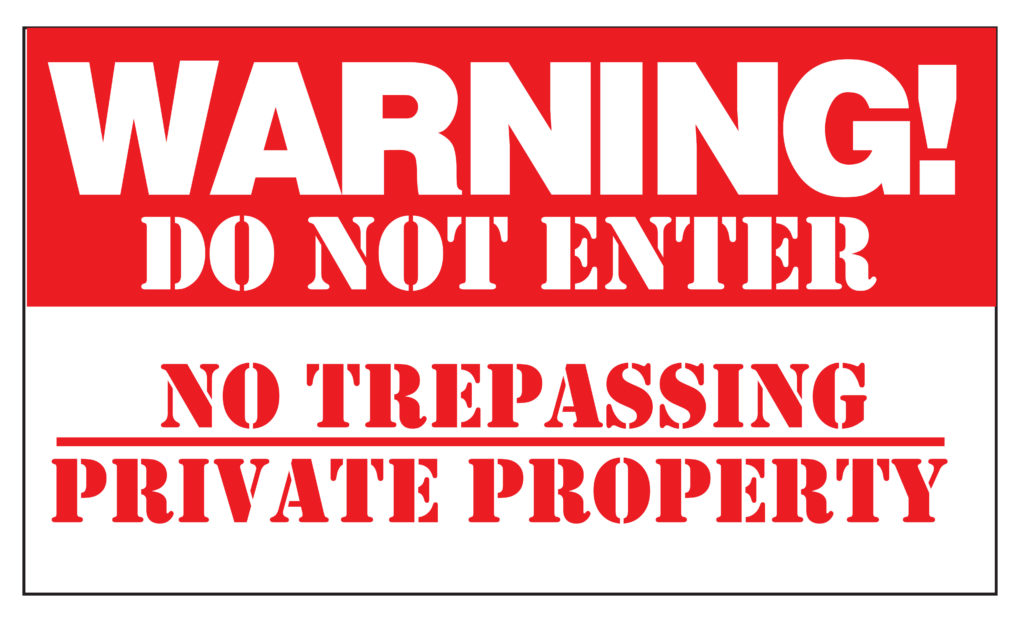Hire an Experienced Trespassing and Easement Lawyer
What Is an Easement?
It allows a person to use a portion of someone else’s property for a documented purpose. The easement holder does not own the property, but he or she can use the property for a specified reason. With this, the person does not trespass on the owner’s property. The owner may continue using the property and can still prevent non-easement holders from using the property.
Land affected by this is known as a “serving state,” and the person benefiting from it is the “dominant estate.”
If you recently moved onto a new property and your neighbor has an easement for a piece of your land, trespassing charges cannot apply. But if you believe this is unnecessary and should not be in place, you can consult with an attorney to dispute it. If a person continues to use your property after easement removal, further violations qualify for trespassing charges. Connect with a legal advocate near you by calling (866) 345-6784, or fill out the form on our website.
What Is Trespassing?
Trespassing is when one party steps onto property that does not belong to her or him without the property owner’s consent. This includes walking through a person’s yard, building a fence on her or his property or storing your property on the owner’s land. There must be a level of intent and knowledge for the act to qualify as trespassing. If a person unknowingly wanders onto another’s property, this is not trespassing.
Types of Easements
To create one, typically, one party approaches a property owner requesting permission to use her or his land. If the parties reach an agreement, the easement becomes a legal document that both parties sign. The holder often offers the property owner compensation. There are two main types:
In Gross
An “in gross” easement is when one exists between the property owner and the easement holder. It does not extend to future property owners. Once the property transfers, it no longer exists.
Appurtenant
An “appurtenant” easement attaches to a piece of land, not the landowner. This means it extends beyond when the property sells and transfers to any new property owners.
Reasons for Creating an Easement
There are several types, with each serving a unique purpose:
Easement by Necessity
This occurs when a party must cross someone’s property to get to her or his property. The law states that a person must enter her or his own home. If that person cannot enter personal property going on someone else’s property, then an easement by necessity is placed. It also allows people to use another’s property to access main roads.
Utility Easement
These are the most common, and they typically do not affect the property owner. It states that the property lies on a utility easement and that part of the land is used for utility. Even with these in place, a property owner can build or plant on the piece of land.
Private Easement
This occurs when property owners sell an easement to someone else to allow that person to utilize their land. These exist so that holders can access things like solar, sewer or water well access.
Prescriptive Easement
These are in place when a person uses another’s land, such as pathways, driveways or shortcuts, for a consecutive amount of time. The length of time required for prescriptive easements varies from state to state but can be around 10-20 years.
How to Terminate an Easement
They are typically permanent, but a property owner can dispute or terminate one if necessary. Here are some ways to terminate an easement:
One Owner Buys the Other Out
You can terminate one by paying the holder to release the servient estate. Another option is to get the holder to relinquish easement rights in writing.
Misuse of an Easement
If a holder misuses the property, it may be terminated. For example, if the easement is in place so the holder can access her or his home easier but uses the property by building on it, that is considered trespassing and grounds for termination.
Abandonment of an Easement
If one goes unused, the property owner can try to get it removed because it was “abandoned.”
When You Should Hire an Attorney
If there is an easement on your property, it should not disrupt your livelihood or cause you any burden. If you find the holder abusing the servient estate, contact an attorney who can help enforce the specific guidelines.
In the event of an unduly burdened servient estate, the owner can pursue court orders with an attorney’s help that can provide the following:
- Restricting the holder’s behavior on the property
- Monetary damages paid by the holder
- Termination of the easement
An attorney can help you better understand your options when dealing with a troublesome easement. They can also produce evidence to support your case so you can move forward without the unduly burden.
Work With an Experienced Local Lawyer
If you believe someone illegally trespasses on your property or you need to dispute an easement, contact an experienced trespassing lawyer right away. These cases vary widely from state to state, and you need a local legal advocate to give you advice on how to proceed.
Submit a request online or call us today at (866) 345-6784 to get in touch with an experienced lawyer in your area!

